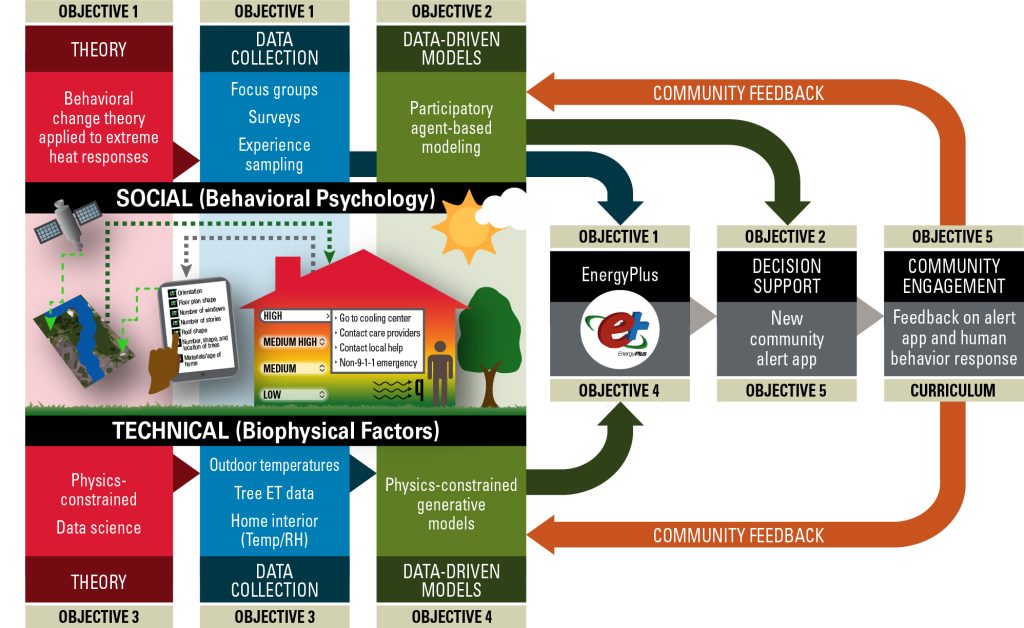SPIRE-EIT 2024
Summer Program for Interdisciplinary Research and Education – Emerging Interface Technologies
A data-driven approach to designing a community-focused indoor heat emergency alert system for vulnerable resident
Project Title: A data-driven approach to designing a community-focused indoor heat emergency alert system for vulnerable residents
Short Title: CommHEAT
Date: March 1, 2024
Faculty Mentor:
Michael Dorneich (dorneich@iastate.edu)
Graduate mentor:
Tian Yao (tyao@iastate.edu)
REU Interns: Ruby Thomas, Chukwuma Maduwuba, and Angelica Brito Diaz
The CommHEAT project aims to tackle the severe but often overlooked danger of extreme heat, particularly in vulnerable communities. Extreme heat is hazardous for the elderly and low-income residents who are less likely to have centralized or adequate home cooling. As part of an NSF-funded project, we are developing physics-aware models to predict indoor heat at the street or house level beyond today’s city-wide heat indexes. However, communicating personalized and customized heat information alone is insufficient to change people’s behaviors. This research focuses on how to communicate community-focused indoor heat warnings to residents in such a way as to overcome barriers to action and change behaviors to mitigate heat emergencies. We will research how to best engage community residents through an app that gives residents the information they need to make better decisions. Additionally, the interactions may involve residents and their support networks, including family and caregivers, to help them take necessary actions to prevent heat-related emergencies. This research aims to improve the ability of vulnerable communities to respond effectively to heat emergencies and ensures that action can be taken to safeguard people’s health and well-being.
In this project, REU students would gain hands-on experience developing mobile applications focused on social good, specifically addressing the critical issue of extreme heat in vulnerable communities. The first task would be to understand the problem space and the types of solutions that exist today. The students can develop empathy and have a deeper understanding of the challenges faced by heat vulnerable populations through a user-centered design process. Based on that work, the team would explore the most effective way to present information that can change residents’ adaptive behaviors during heat events. Also, they will focus on creating a community support system to activate residents’ social networks. Technical challenges include translating data from computational models to a representation and interaction design effective for residents, how to activate social support networks, and how to use technology to impact resident behavior. Interns will create an app and deploy it to multiple mobile devices, and operating systems, including smartphones and tablets. Considerations must be made for different screen sizes and resolutions so the interface is effective for all users. The team would then implement a testable demonstration of their design. If time permits, a preliminary formative evaluation with users may be conducted. Finally, the 5-page research paper they write as part of the program would be further developed for publication


